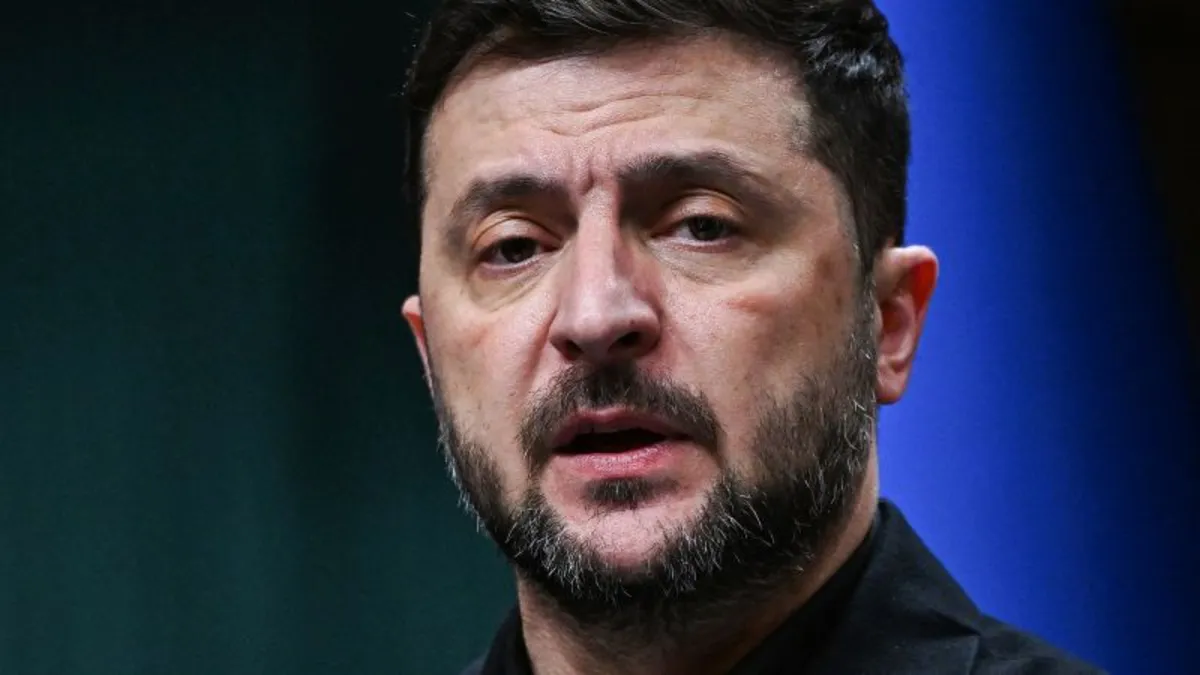
Ukraine is currently experiencing one of the most challenging periods in its history, as emphasized by President Volodymyr Zelensky on Friday. He expressed concerns that a proposed plan by the United States for resolving the ongoing conflict could undermine Ukraine's dignity and compromise its relationships with key allies. The 28-point plan introduced by former President Donald Trump has raised alarms in Kyiv, as it appears to favor Russian demands, including territorial concessions and military limitations.
In his daily video address, Zelensky stated, “The pressure on Ukraine is now at its most intense.” He outlined the difficult choices facing the nation: sacrificing dignity, risking the loss of a vital partner, or accepting the terms of the 28-point plan amid the prospect of a harsh winter. Despite these challenges, Zelensky reassured the public that Ukraine would work “calmly” and swiftly with the U.S. and its allies to seek an end to the war.
In light of Trump's proposal, numerous European leaders have voiced their support for Ukraine. They emphasize that any decisions regarding Ukraine's future should involve its input. During a joint call with Zelensky, leaders including German Chancellor Friedrich Merz, French President Emmanuel Macron, and British Prime Minister Keir Starmer reaffirmed their commitment to safeguarding European and Ukrainian interests for the long term. Their discussions focused on ensuring that Ukrainian armed forces maintain their capability to defend the country’s sovereignty.
Critics argue that Trump’s plan largely accommodates Russian interests, mirroring Moscow's maximalist demands from prior negotiations. The plan, which has been described by sources familiar with it, outlines commitments for both sides to achieve a lasting end to the conflict. Key components of the proposal include a cessation of hostilities, global funding for reconstruction, and the establishment of a board led by the U.S. President to oversee compliance with the commitments.
Many elements of the 28-point plan have previously been rejected during negotiations. One particularly contentious aspect involves recognizing Russian-occupied territories such as Crimea, Luhansk, and Donetsk as “de facto Russian,” a condition that Kyiv views as a significant red line. Additionally, the plan stipulates that Ukrainian forces must withdraw from certain areas in eastern Donetsk, which would then be designated as a neutral demilitarized buffer zone recognized as Russian territory.
Throughout the turmoil, President Zelensky has remained steadfast in his commitment to Ukraine, stating that he will not betray his country. “I will present arguments, I will persuade, I will offer alternatives,” he affirmed. His goal is to ensure that Ukraine does not give the perception of being unwilling to pursue peace or obstructing diplomatic efforts.
This situation continues to evolve, and updates will follow as negotiations progress and Ukraine navigates its path forward in these tumultuous times.